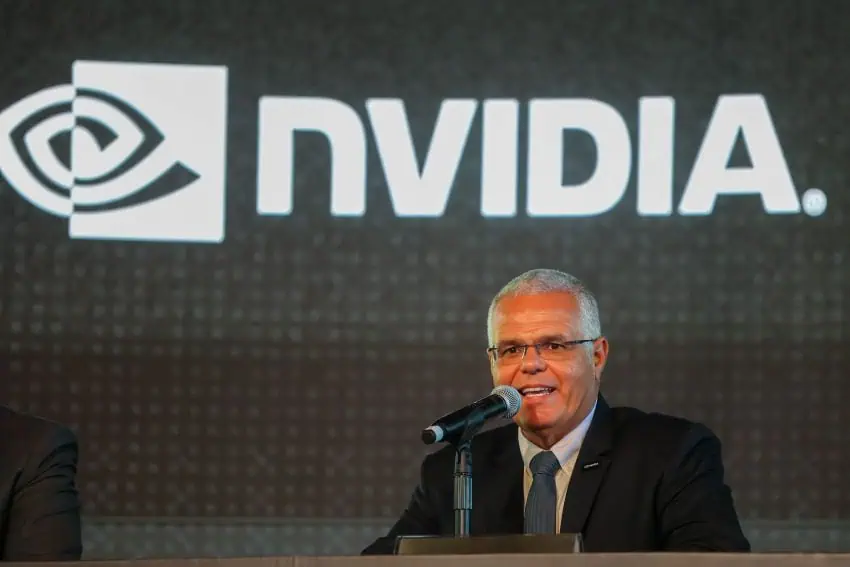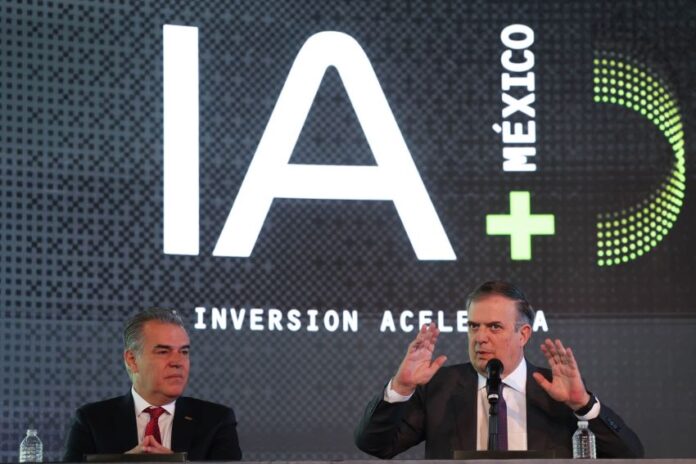Mexico is working on an artificial intelligence (AI) language model to help the country integrate into the new data-based global economic order, Economy Minister Marcelo Ebrard announced on Tuesday.
The announcement came during the presentation of the upcoming Mexico IA+ Accelerated Investment international event, scheduled to take place in Mexico City on Nov. 12 and 13.

Backed by the giant technology company Nvidia, the event will serve as the primary launch platform for Mexico’s artificial intelligence project, including the presentation of its large language model (LLM).
“AI is the modern alphabet,” Ebrard said. “Either we hurry up and master that alphabet, or it’s going to be a huge disadvantage [for us] in the new world arrangement we’re seeing emerge today.”
This AI initiative follows President Claudia Sheinbaum’s announcement regarding the upcoming launch of the National Artificial Intelligence Laboratory as one of the 18 actions outlined in Plan México. Sheinbaum has stressed that investment and scientific and technological development are a fundamental part of her administration.
Meanwhile, Marcio Aguiar, Nvidia’s director for Latin America, confirmed the company’s collaboration in the Mexican AI project through training to develop specialized talent.
“It is essential for the country to train people so that it can be more competitive globally and, obviously, position Mexico as one of the main players,” Aguiar said. He also explained that the model will draw data from Mexican culture and history.
According to Ebrard, Mexico has two key advantages for the global technology sector: a young workforce eager to enter the industry, and 5.5 million economic units that can connect with this talent, according to data from the National Institute of Statistics and Geography (INEGI).
Nvidia y la Inteligencia Artificial como prioridad en el Plan México pic.twitter.com/oodcKJHVIP
— Marcelo Ebrard C. (@m_ebrard) July 29, 2025
The government’s ambition is to make its AI project accessible to over 5 million university students and more than 5 million businesses, with the expectation of seeing “visible and tangible results” in two years’ time, Ebrard said.
However, adequate infrastructure is needed to support this initiative.
According to the Business Coordinating Council (CCE), investment in data centers could reach US $9.2 billion, potentially generating up to $27 billion in indirect economic impact. Adriana Rivera Cerecedo, director of the Mexican Data Center Association, told news agency EFE that this means installing more than 70 data centers offering colocation or cloud services.
Currently, the large language models (LLM) sector is dominated by companies like OpenAI, Google and Microsoft, all based in the United States. Other countries have developed their own LLMs, including France with Mistral, China with DeepSeek and Chile with LatamGPT.
LatamGPT is intended as a collaborative regional project developed by the National Center for Artificial Intelligence in Chile (CENIA) and also supported by Mexico and Nvidia.
With reports from Expansión, El Informador, El Financiero and EFE
